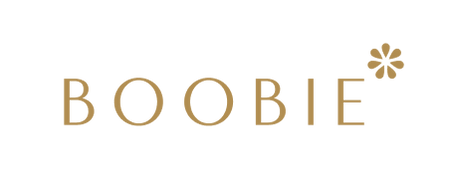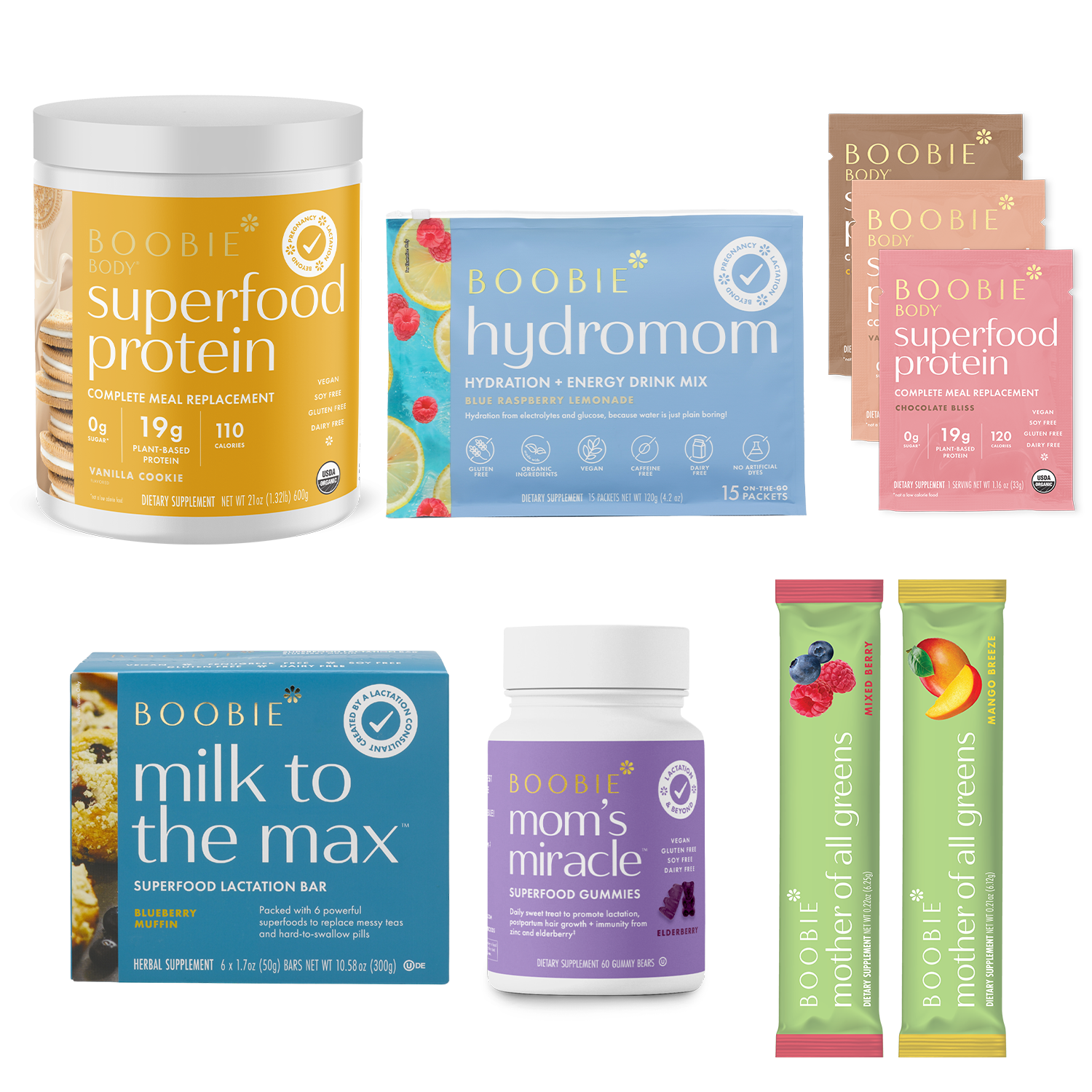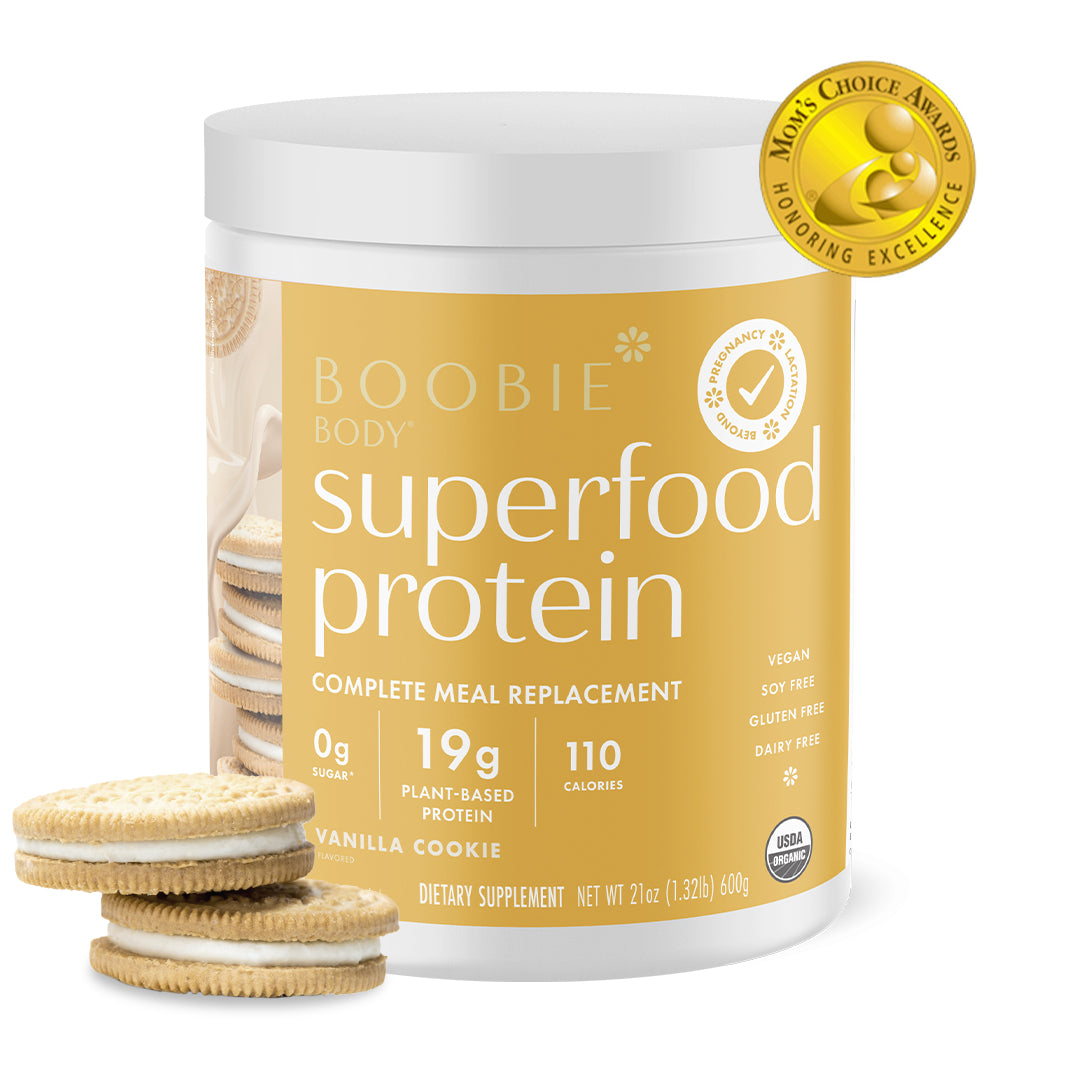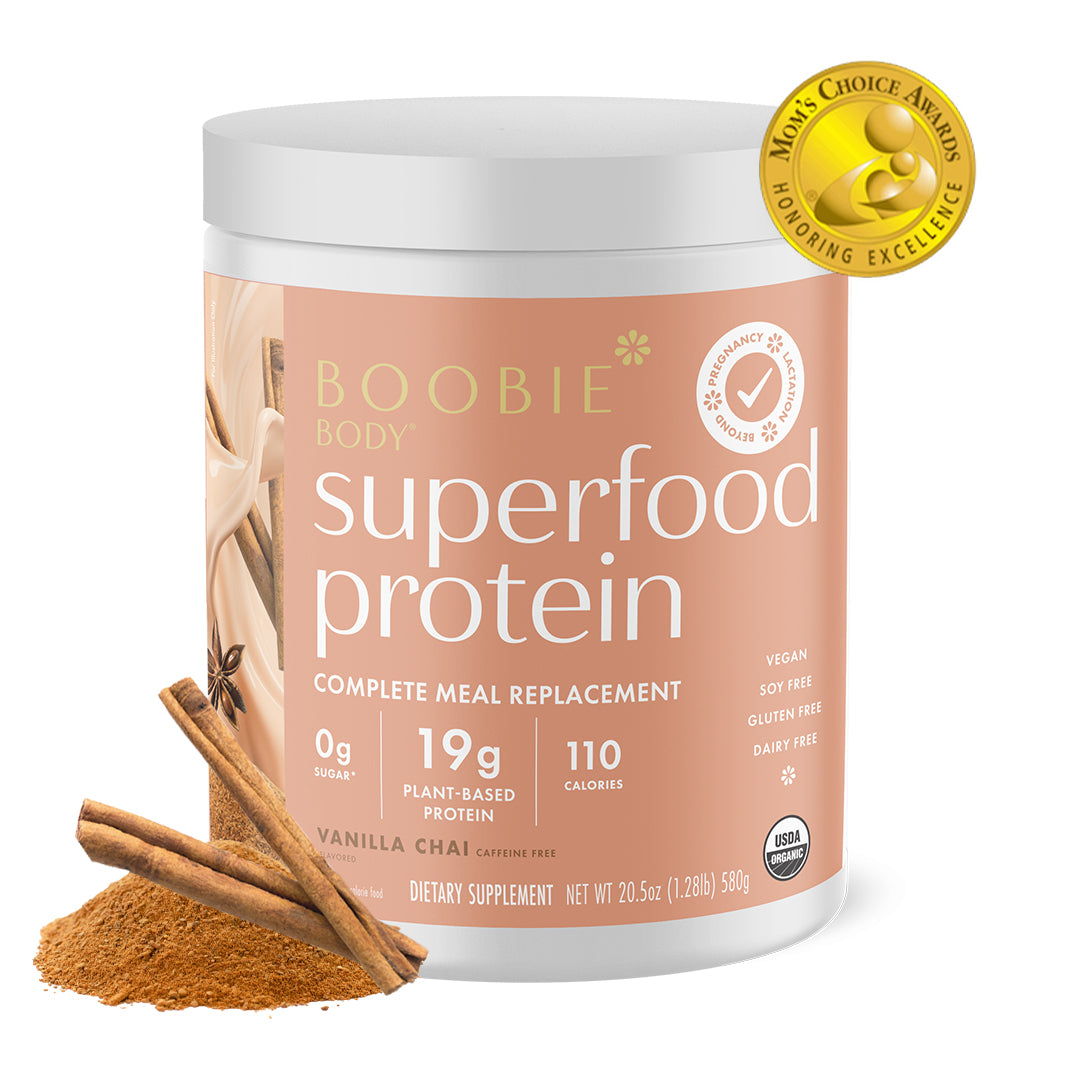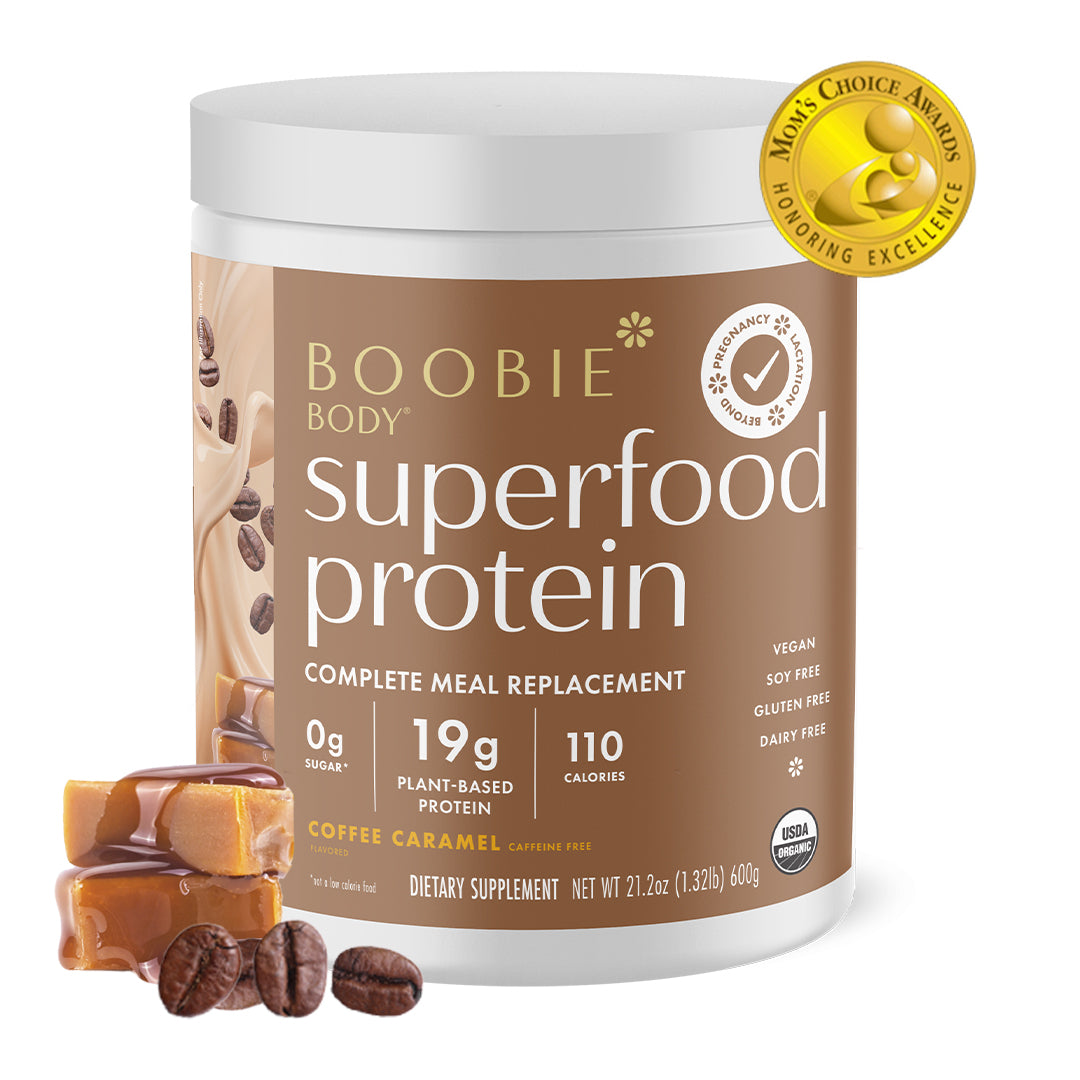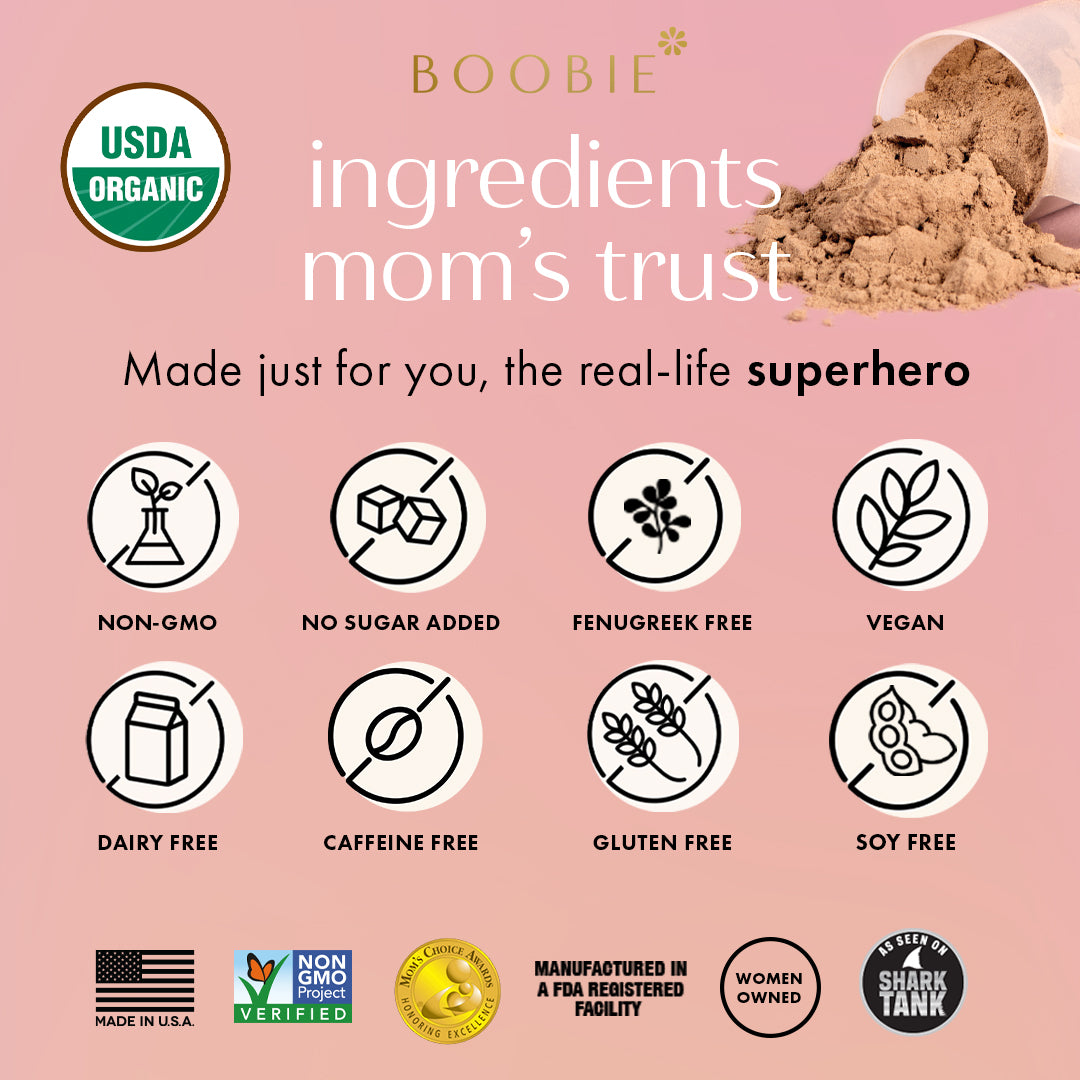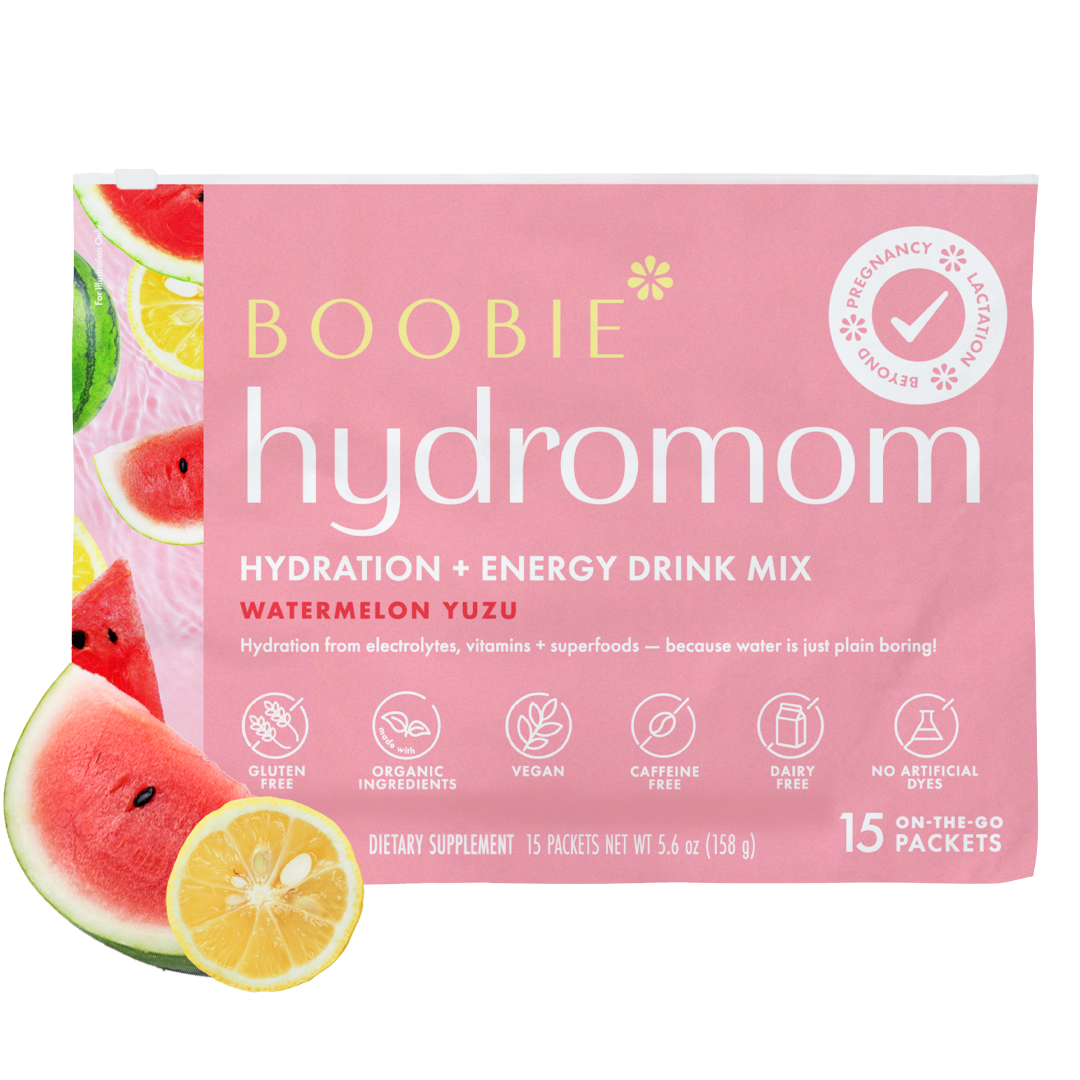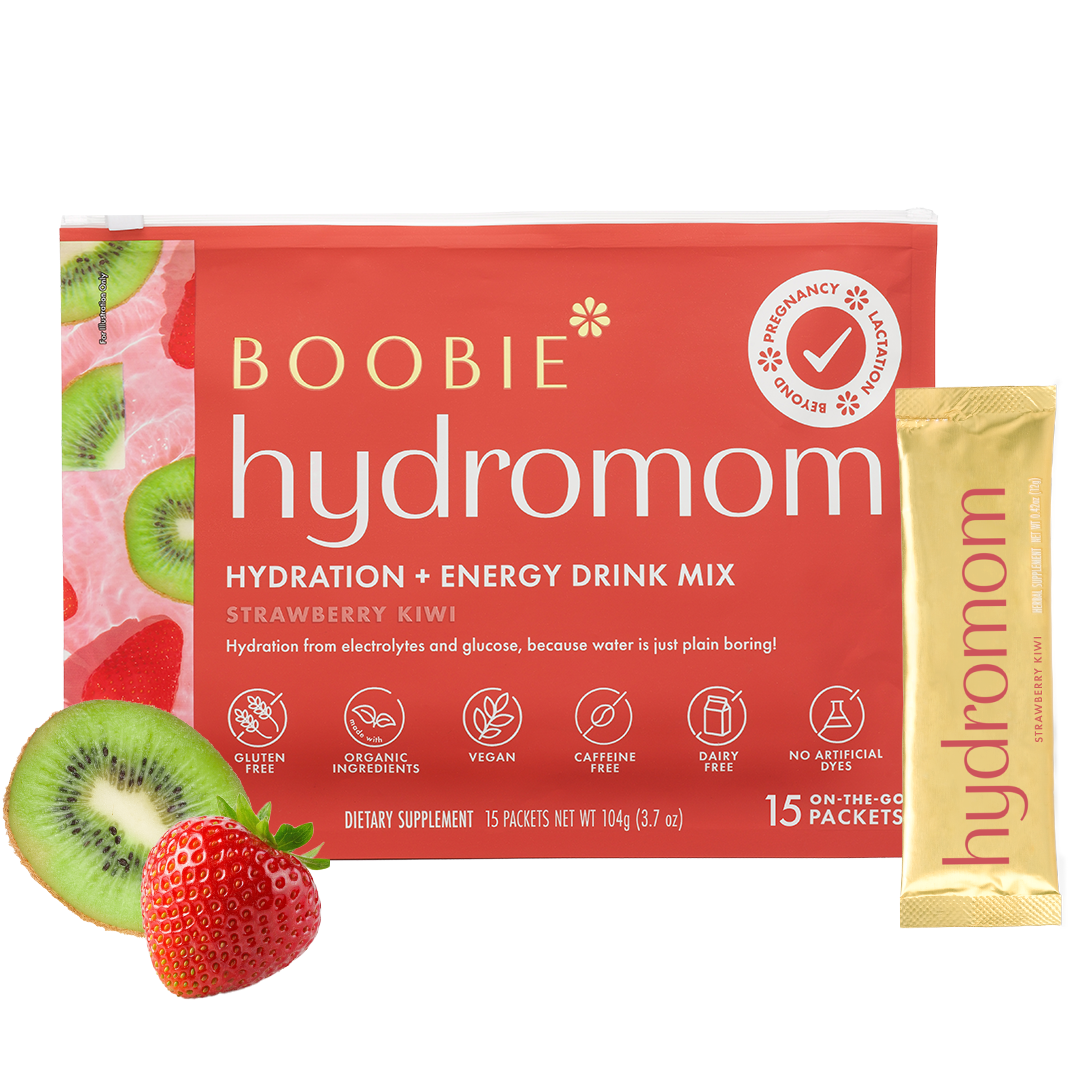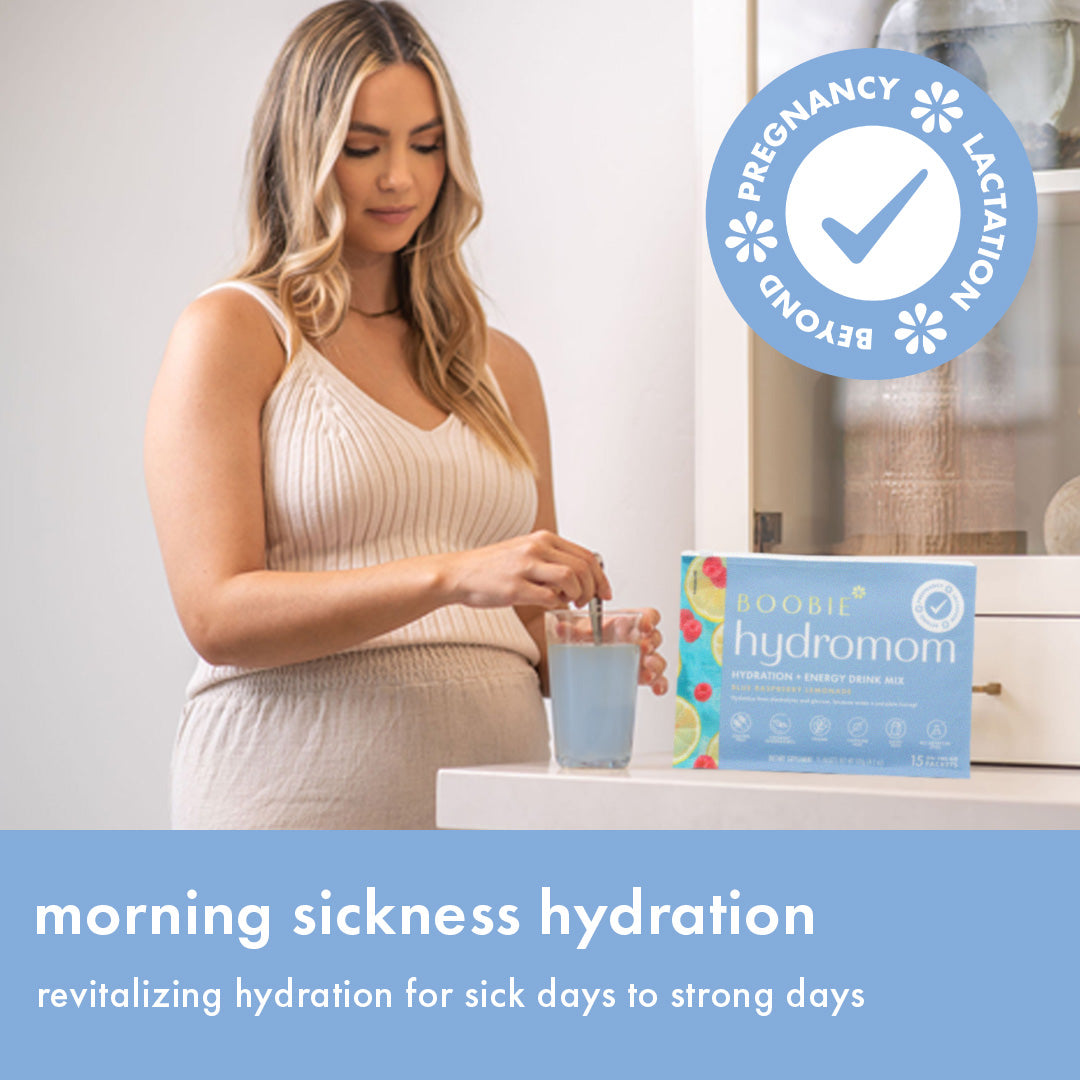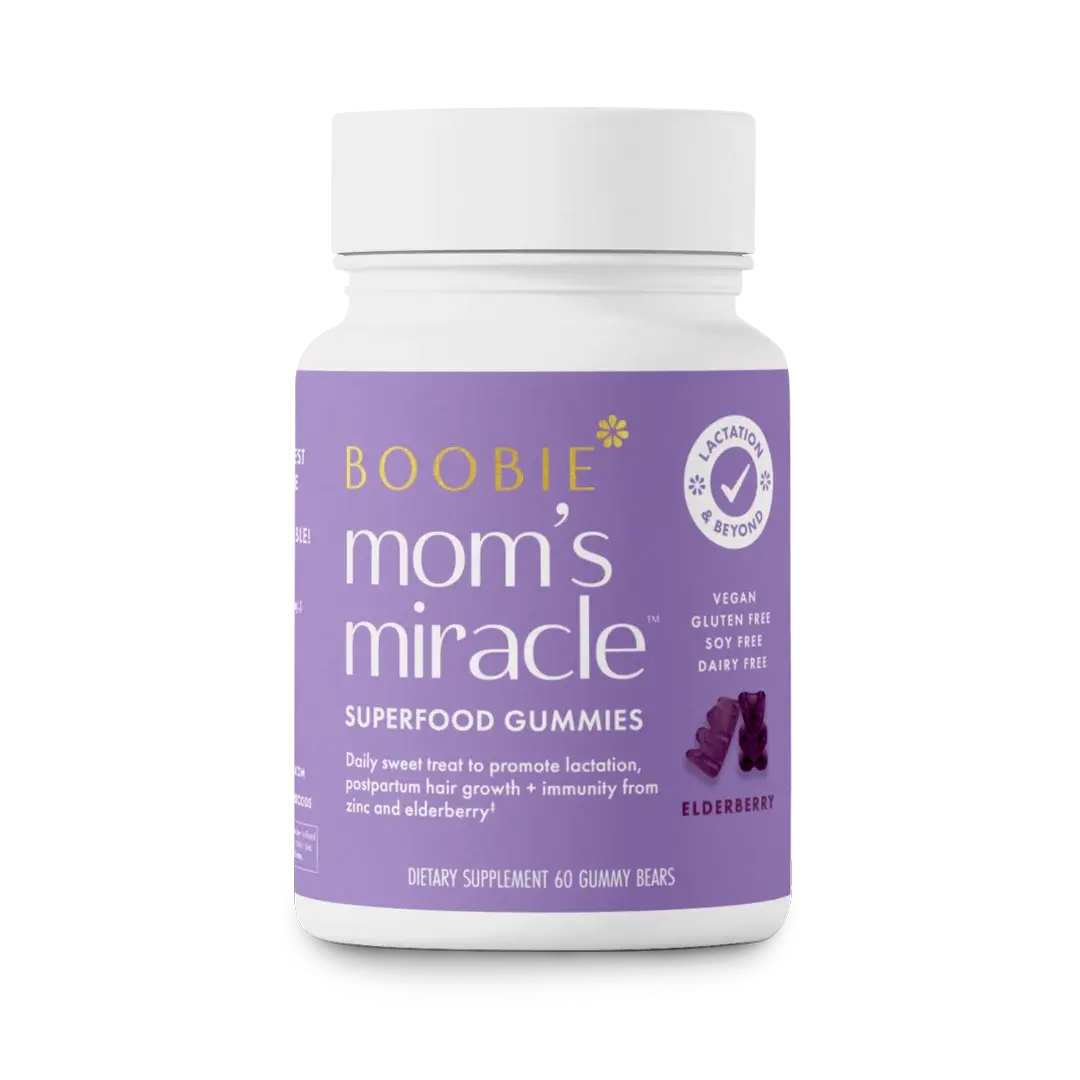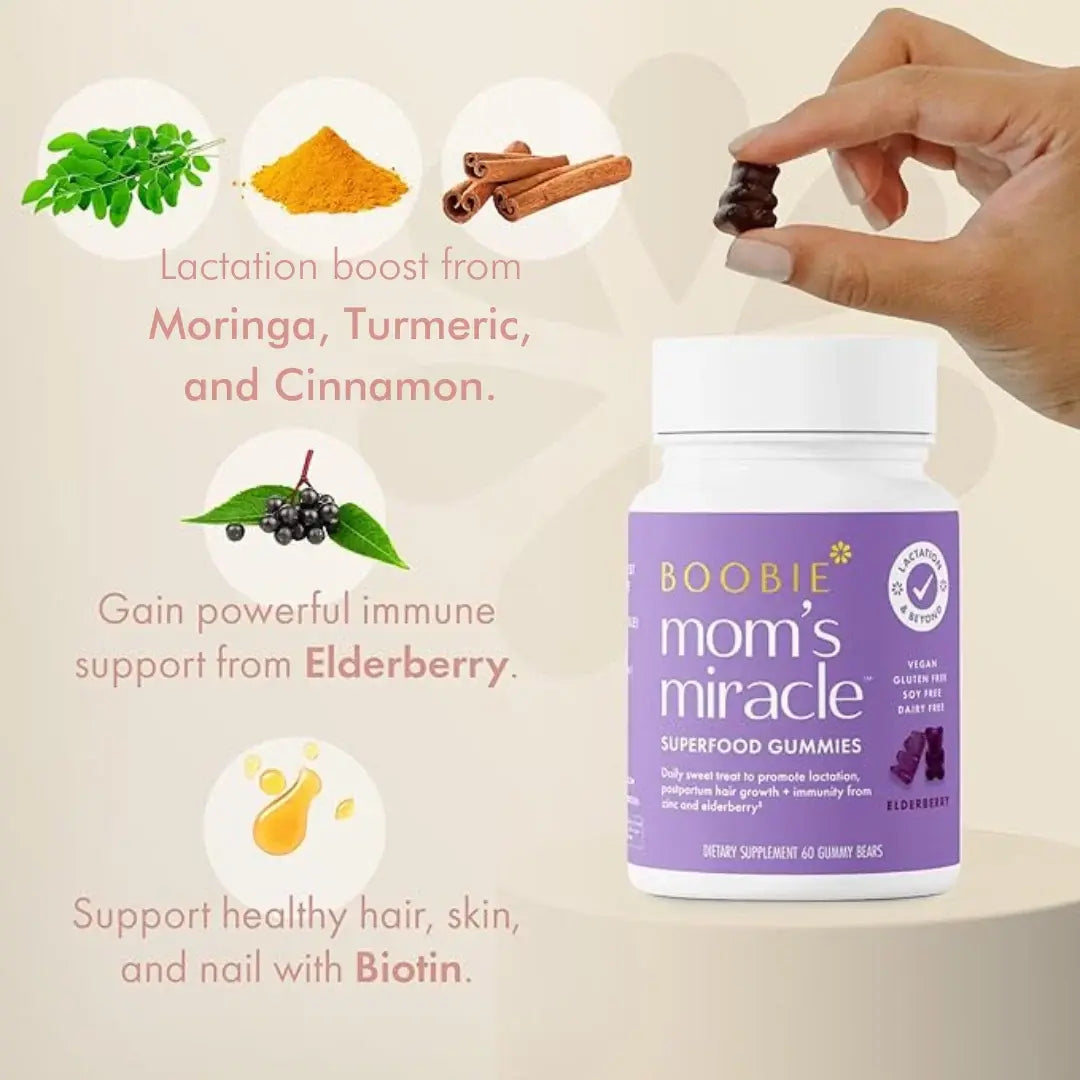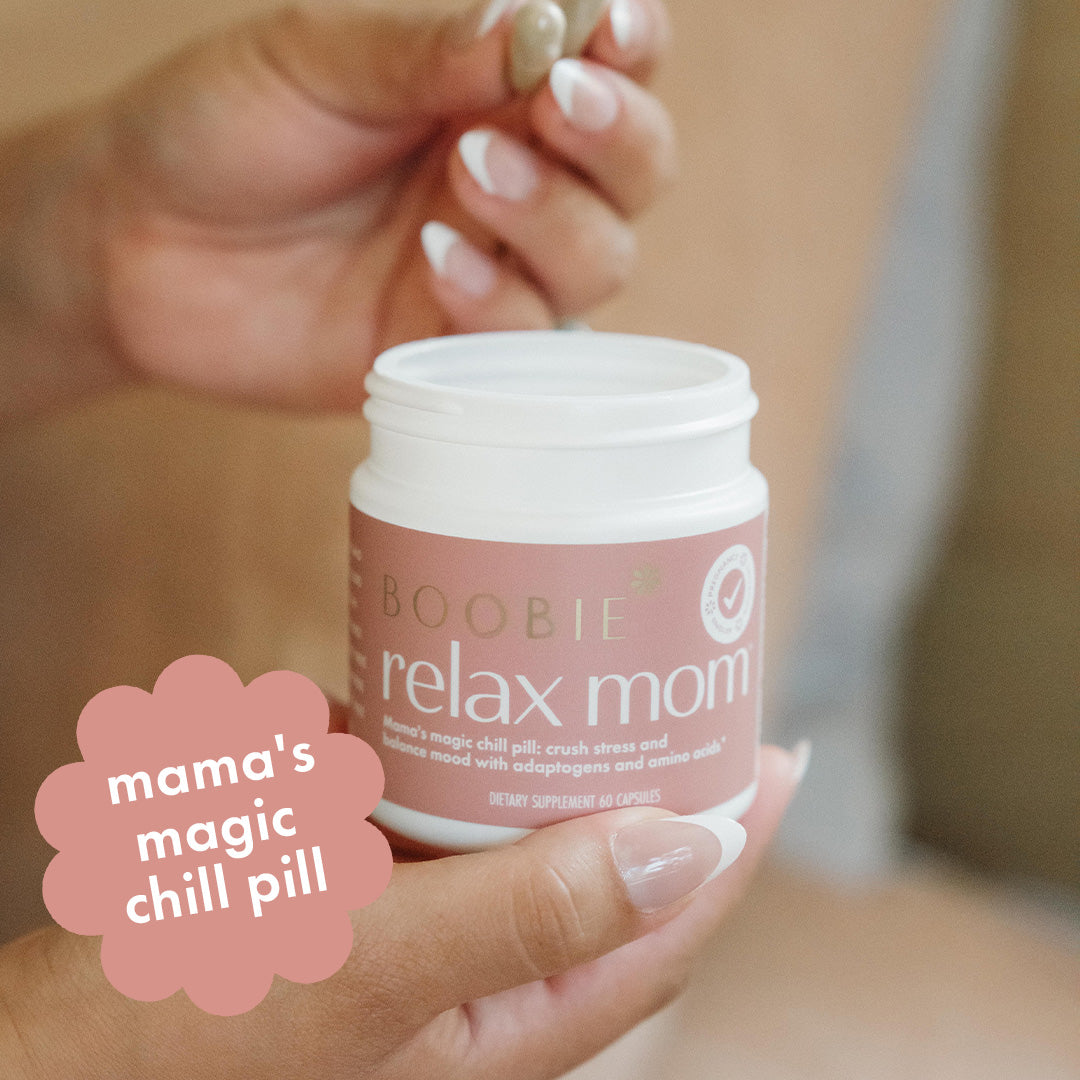Should You Take Vitamins & Supplements While Breastfeeding?
You were consistent with your prenatal vitamins throughout pregnancy — but now that you're breastfeeding, you may be wondering: Do I still need supplements? Are they even safe?
The truth is, the same rule applies now as it did during pregnancy: a well-balanced, healthy diet is the best way to nourish yourself and your baby. But mom life is busy, and between nursing, pumping, and chasing little ones, it's not always easy to get everything your body needs. That's where natural lactation supplements can play an important role — acting like an "insurance policy" to help fill nutritional gaps, increase milk supply, and boost your overall health, including mental health.
What Supplements Are Safe While Breastfeeding?
Most vitamins and minerals are safe, and in fact many moms benefit from continuing their prenatal during postpartum and breastfeeding. Water-soluble vitamins (like C and B vitamins) are simply excreted if your body doesn't need them, so the key is to be strategic and choose wisely. When considering breastfeeding medicine and lactation supplements, it's important to look at both scientific evidence and anecdotal evidence.

Here are some of the most common (and safe!) options:
 Elderberry + Zinc: Safe for moms and available in kid-friendly formulas too. You'll find both in BOOBIE® Mom Miracle Gummies — with the added bonus that they also support breast milk production (a benefit most don't talk about enough). These gummies truly earn their "miracle" name.
Elderberry + Zinc: Safe for moms and available in kid-friendly formulas too. You'll find both in BOOBIE® Mom Miracle Gummies — with the added bonus that they also support breast milk production (a benefit most don't talk about enough). These gummies truly earn their "miracle" name.
 Vitamin D3: My favorite vitamin! Aim for 5,000 IU daily (or more until your level is >50 ng/mL). Supports immunity and may reduce the risk of infections and preterm labor. Learn more about Vitamin D3 here.
Vitamin D3: My favorite vitamin! Aim for 5,000 IU daily (or more until your level is >50 ng/mL). Supports immunity and may reduce the risk of infections and preterm labor. Learn more about Vitamin D3 here.
 Hydration: Water is not enough when you are sick. Look for formulas with glucose + sodium + electrolytes (like Hydromom). The World Health Organization recommends this combo for proper hydration. Learn why you should skip “zero sugar” formulas if you need to hydrate.
Hydration: Water is not enough when you are sick. Look for formulas with glucose + sodium + electrolytes (like Hydromom). The World Health Organization recommends this combo for proper hydration. Learn why you should skip “zero sugar” formulas if you need to hydrate.
 Protein: Choose guilt-free plant-based protein with clean organic ingredients. Dairy can thicken mucus and worsen GI symptoms, while plant-based fuel keeps you strong during recovery. Try BOOBIE Body for a complete, plant-based meal replacement designed for moms.
Protein: Choose guilt-free plant-based protein with clean organic ingredients. Dairy can thicken mucus and worsen GI symptoms, while plant-based fuel keeps you strong during recovery. Try BOOBIE Body for a complete, plant-based meal replacement designed for moms.

Herbal Galactagogues and Lactation Supplements
Many breastfeeding mothers turn to herbal medicines and traditional medicines to support their breast milk supply. Some popular galactagogues include:
 Fenugreek
Fenugreek
 Milk thistle
Milk thistle
 Blessed thistle
Blessed thistle
 Fennel
Fennel
 Anise
Anise
 Dill
Dill
While these herbs have been used for centuries, it's important to note that clinical trials on their effectiveness are limited. Some mothers report positive results, but individual experiences may vary.
Other herbs like echinacea and ginger are often used while breastfeeding for immune support. However, always consult with your healthcare provider before adding any new supplements to your routine.

What to Avoid
Not all supplements are created equal. Here's what to look out for:
 No Quality Testing = No Go: Choose products that are cGMP or NSF verified, which means they've been safely tested for purity and quality. It's more work for companies like BOOBIE®, but we believe moms deserve the highest standards. That's why we obtain USDA Organic, CCOF, GFCO, and Non-GMO Project certifications, plus third-party testing — and proudly stand by our ingredients and formulas.
No Quality Testing = No Go: Choose products that are cGMP or NSF verified, which means they've been safely tested for purity and quality. It's more work for companies like BOOBIE®, but we believe moms deserve the highest standards. That's why we obtain USDA Organic, CCOF, GFCO, and Non-GMO Project certifications, plus third-party testing — and proudly stand by our ingredients and formulas.
 Skip Mega-Dosing: Avoid vitamins or minerals in very high doses your body can't use. Excess nutrients don't make you healthier — they can cause imbalances or simply get flushed out in your urine.
Skip Mega-Dosing: Avoid vitamins or minerals in very high doses your body can't use. Excess nutrients don't make you healthier — they can cause imbalances or simply get flushed out in your urine.
 Check With Your Provider: Every mom's needs are different. Always confirm specific supplements with your healthcare provider or IBCLC to be sure they're safe for you and your baby. Discuss any potential side effects or contraindications, especially if you have any medical conditions or are taking other medications.
Check With Your Provider: Every mom's needs are different. Always confirm specific supplements with your healthcare provider or IBCLC to be sure they're safe for you and your baby. Discuss any potential side effects or contraindications, especially if you have any medical conditions or are taking other medications.
Understanding Supply and Demand
It's important to remember that breast milk production operates on a supply and demand basis. While lactation supplements and breastfeeding pills may help, ensuring a proper latch and frequent nursing or pumping are crucial for maintaining and increasing milk supply.
If you're concerned about low milk supply, consult with a lactation consultant before turning to supplements. They can help identify any underlying issues and suggest appropriate solutions, which may include dietary changes, increased nursing frequency, or in some cases, the use of galactagogues.
You Got This, Mama!
Taking care of yourself is part of taking care of your baby. With the right nutrients, hydration, and support, you can feel confident your milk — and your health — will thrive.
